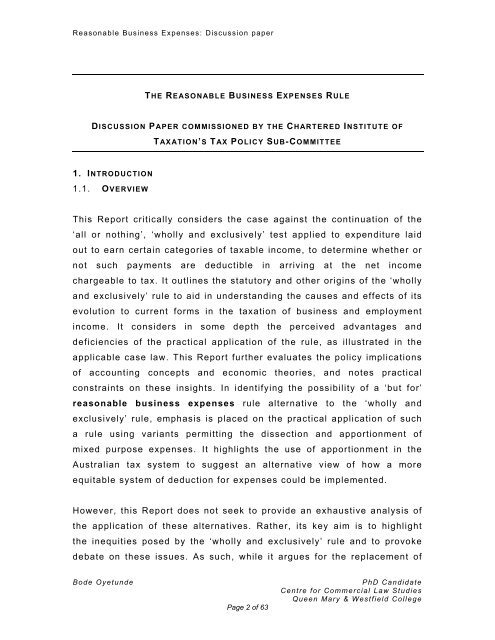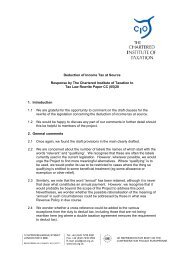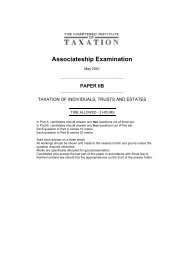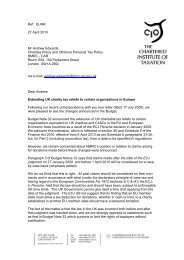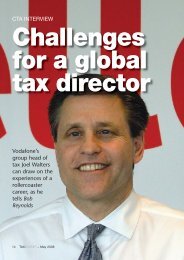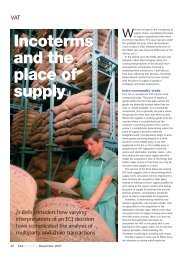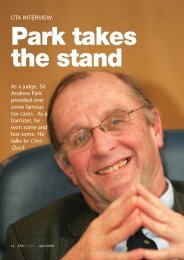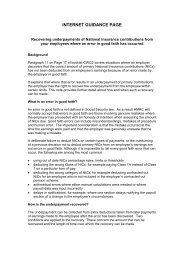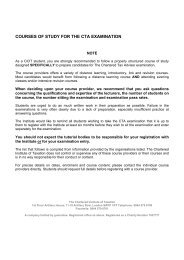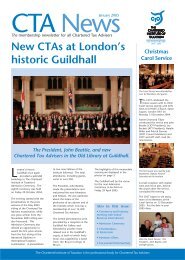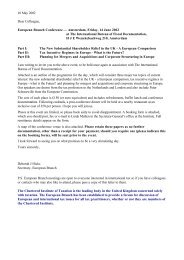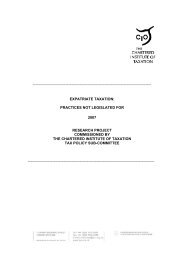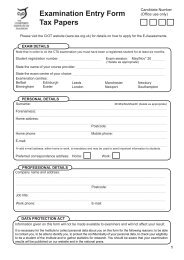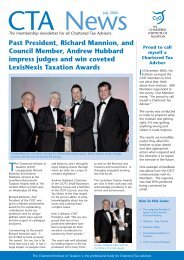Reasonable Business Expense - The Chartered Institute of Taxation
Reasonable Business Expense - The Chartered Institute of Taxation
Reasonable Business Expense - The Chartered Institute of Taxation
Create successful ePaper yourself
Turn your PDF publications into a flip-book with our unique Google optimized e-Paper software.
<strong>Reasonable</strong> <strong>Business</strong> <strong>Expense</strong>s: Discussion paperTHE REASONABLE BUSINESS EXPENSES RULEDISCUSSION PAPER COMMISSIONED BY THE CHARTERED INSTITUTE OFT AXATION’S TAX POLICY SUB-COMMITTEE1. INTRODUCTION1.1. OVERVIEWThis Report critically considers the case against the continuation <strong>of</strong> the‘all or nothing’, ‘wholly and exclusively’ test applied to expenditure laidout to earn certain categories <strong>of</strong> taxable income, to determine whether ornot such payments are deductible in arriving at the net incomechargeable to tax. It outlines the statutory and other origins <strong>of</strong> the ‘whollyand exclusively’ rule to aid in understanding the causes and effects <strong>of</strong> itsevolution to current forms in the taxation <strong>of</strong> business and employmentincome. It considers in some depth the perceived advantages anddeficiencies <strong>of</strong> the practical application <strong>of</strong> the rule, as illustrated in theapplicable case law. This Report further evaluates the policy implications<strong>of</strong> accounting concepts and economic theories, and notes practicalconstraints on these insights. In identifying the possibility <strong>of</strong> a ‘but for’reasonable business expenses rule alternative to the ‘wholly andexclusively’ rule, emphasis is placed on the practical application <strong>of</strong> sucha rule using variants permitting the dissection and apportionment <strong>of</strong>mixed purpose expenses. It highlights the use <strong>of</strong> apportionment in theAustralian tax system to suggest an alternative view <strong>of</strong> how a moreequitable system <strong>of</strong> deduction for expenses could be implemented.However, this Report does not seek to provide an exhaustive analysis <strong>of</strong>the application <strong>of</strong> these alternatives. Rather, its key aim is to highlightthe inequities posed by the ‘wholly and exclusively’ rule and to provokedebate on these issues. As such, while it argues for the replacement <strong>of</strong>Bode OyetundePage 2 <strong>of</strong> 63PhD CandidateCentre for Commercial Law StudiesQueen Mary & Westfield College


